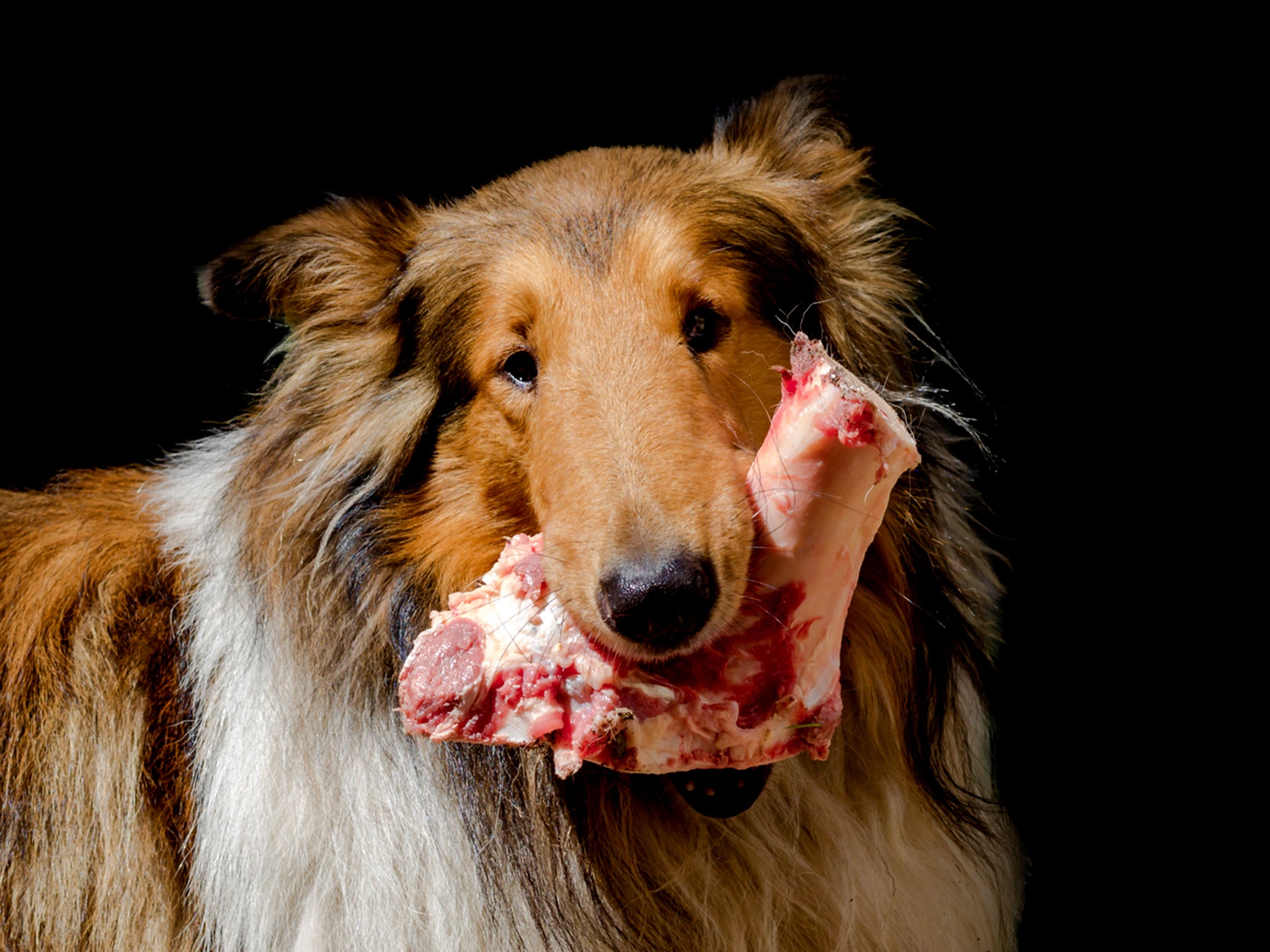Feeding dogs raw meat could be fuelling spread of antibiotic-resistant superbugs, scientists warn
Trendy diet may transmit killer bacteria from pet to owner

Feeding dogs raw meat could be fuelling the spread of superbugs, according to new research.
Raw meat meals for dogs are often advertised as the healthiest option, with some companies saying the food gives pets shinier coats, improves their skin and strengthens their teeth.
But Bristol University scientists have found that dogs who are given raw meat are more likely to pass on antibiotic-resistant forms of E. coli in their faeces.
Professor Matthew Avison, lead author of the study, said: “E. coli is a widespread bacterium found in the intestines of all humans and animals.
“However it’s a common cause of many diseases including urinary tract infection and can cause serious illness including sepsis if it spreads to other parts of the body.
“We should do everything we can to reduce the circulation of critically important antibiotic-resistant E. coli and other bacteria.
“Our research adds to the increasing evidence that not feeding raw meat to dogs may help in that objective.”
Bacteria can be passed from dogs to owners through everyday interactions, such as picking up a dog’s faeces while on a walk.
Professor Kristen Reyher, co-author of the study, said: “We know humans and animals share bacteria with one another – so what we find in your pet may well also be in you.
“Pet owners should be encouraged to practice good hygiene and not feeding raw food to your dog can be part of this.
“We can all do our part to decrease antibiotic resistance and its terrible effects on both human and animal health.”
Two analyses, involving 600 adult dogs, identified links between eating raw meat and excreting resistant E. coli.
Owners completed questionnaires about their dogs diets and environment and provided faecal samples from them.

Data from a variety of dogs showed the bacteria could be present regardless of age or length of time spent on the diet.
Prof Avison said the presence of superbugs did not necessarily mean a dog or owner would become sick but there were still risks associated with the spread of the resistant E. Coli.
Prof Avison added: “Antibiotic-resistant bacteria are everywhere, but some antibiotics are considered critically important for use in humans.
“We have shown dogs fed raw meat are more likely to carry bacteria resistant to these important medicines.”
In 2020, Portugese scientists branded uncooked dog food an “international public health risk”.
The University of Porto team examined 25 major brands from supermarkets and pet shops and found multidrug-resistant bacteria identical to those found in patients.
The Pet Food Manufacturers’ Association, a British industry body, said all raw pet food was prepared in line with guidance from the Department for Food, Agriculture and Rural Affairs (Defra) and the Food Standards Agency.
Superbugs, defined by the World Health Organisation (WHO) as bacteria that cause infections that cannot be treated with existing antibiotics, killed more than 1.2 million people worldwide in 2019. That figure is set to rise to 10 million people by 2050 if no action is taken to reduce their spread.
The WHO has described superbugs as “one of the greatest public health threats facing humanity”.
The University of Bristol findings were published in One Health and the Journal of Antimicrobial Chemotherapy.






Join our commenting forum
Join thought-provoking conversations, follow other Independent readers and see their replies
Comments